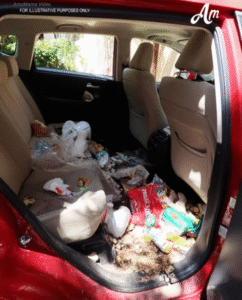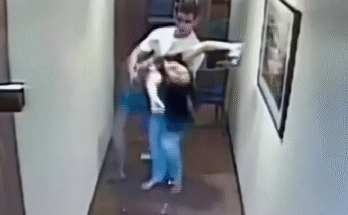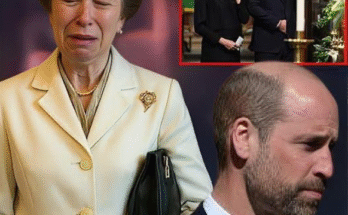My Sister Borrowed My New Car for a Day – What She Did to It Was Unforgivable
It started as a simple favor. My sister, always the charming but sometimes reckless one, asked to borrow my brand-new car for a single day. I hesitated at first — after all, a car is not just a vehicle; it’s an investment, a personal space, and, in my case, a source of pride. But she begged, smiling in that way only siblings can, and I eventually relented. I never imagined that my decision would lead to an unforgettable betrayal.
The Request
“Please, just for today,” she said, her eyes wide and innocent. “I just need to run a few errands. Nothing crazy, I promise.”
It was hard to say no. I thought about the times she had helped me in the past, the countless favors she’d done, and how much I loved my sister despite her flaws. So, reluctantly, I handed over the keys, warning her to be careful.
I never thought that “being careful” would mean nothing once she got behind the wheel.
The Red Flags
The first sign something might be wrong came when she called me less than an hour later. Her voice was nervous, almost panicked.
“Uh… so, I might have scraped the side of the car,” she admitted, trying to laugh it off. I felt a chill run down my spine. A small scrape is one thing, but my heart sank, imagining the glossy finish of my brand-new car marred.
I rushed over, trying to remain calm. When I saw it, it was worse than I imagined. The scrape was noticeable, and there were tiny dents along the door frame. My sister fidgeted, apologizing, but I couldn’t even process the words.
The Full Damage
I decided to let it go. After all, accidents happen. Cars aren’t indestructible. But as the day went on, I started noticing more signs of recklessness.
-
Gas tank empty: She had driven much more than she told me and hadn’t refueled.
-
Messy interior: Fast food wrappers, crumbs, and even a sticky drink spilled on the passenger seat.
-
Suspicious noises: When I started the car, I heard strange rattling sounds. She had apparently driven over something she shouldn’t have, damaging the undercarriage.
I felt my stomach turn. This wasn’t just a scrape; it was a trail of carelessness that I would have to pay for — literally and emotionally.
Confrontation
I confronted her gently at first. “Why didn’t you tell me what really happened?” I asked, trying to control my frustration.
She shrugged, a guilty smile on her face. “I thought you wouldn’t get mad if it was just small stuff. It’s not a big deal.”
Not a big deal? I stared at her, speechless. My brand-new car — the one I had saved months to buy — was covered in scratches, dents, and stains. The repairs would cost thousands. More importantly, the trust I had in her had been shattered.
The Emotional Fallout
It’s not just the money. What she did left me feeling violated in a way I hadn’t expected. Cars carry memories and pride; they are extensions of ourselves. Letting someone I loved into that space, trusting them to treat it carefully, and then discovering the betrayal felt like more than just a financial hit — it felt like a personal one.
I spent hours sitting in the driver’s seat, tracing my fingers over the scratches, imagining how careful I had been when driving for the first time. Every dent was a reminder of carelessness, a symbol of broken trust.
Family Tensions
What made it worse was that she didn’t seem to grasp the gravity of the situation. When I brought it up with our parents, she minimized it. “It’s just a car. You can fix it. It’s not the end of the world.”
I wanted to scream. Of course, cars can be repaired, but the principle matters. Responsibility, accountability, and respect for someone else’s property aren’t things that come back with a repaired door panel. I realized then that the fallout wasn’t just about the car — it was about boundaries and respect, things that are hard to enforce even with family.
Seeking a Resolution
I decided to take practical steps. I had the car inspected by a professional, getting a full assessment of the damage. The total cost for repairs was far higher than I had anticipated. I confronted my sister again, calmly this time, asking her to contribute financially. She hesitated, clearly uncomfortable.
This forced conversation became a turning point. For the first time, she had to confront the consequences of her actions. While she couldn’t undo the damage, acknowledging responsibility was a small step toward rebuilding some semblance of trust.
Lessons Learned
This experience taught me several hard lessons about trust, family, and boundaries:
-
Trust is fragile: Even the closest relationships can be strained by carelessness or disregard.
-
Accountability is essential: Owning up to mistakes matters more than apologies alone.
-
Boundaries protect relationships: Saying no is sometimes necessary, even to loved ones.
-
Communication is key: Clear expectations before lending anything valuable can prevent disaster.
-
Forgiveness doesn’t mean forgetting: You can forgive someone for mistakes while still learning from the experience and adjusting boundaries.
Moving Forward
I have since had the car repaired, but the memory of what happened remains. I’ve had to rebuild my trust in my sister slowly, setting new rules for borrowing anything valuable. It hasn’t been easy, but I’ve learned that strong family bonds require both love and discipline.
She has shown remorse and is making an effort to be more responsible, but the incident will stay with us as a cautionary tale — a reminder that even small actions can have major consequences.
Reflection
This experience taught me more about human behavior and relationships than I expected. Material possessions, while important, are symbols of trust, respect, and responsibility. When someone disregards those symbols, it’s not just the object that suffers — it’s the emotional bond.
I still love my sister. She is my family, and I know that mistakes happen. But what she did was a wake-up call about boundaries, accountability, and self-respect. Sometimes, tough lessons come from the people closest to us, and they leave marks — both literal and figurative.
Conclusion
The day my sister borrowed my new car was the day I learned that love and trust don’t mean entitlement. Her actions were unforgivable at the time, and the damage went far beyond scratches and dents. It affected my sense of security, my pride, and my belief that family always respects boundaries.
Now, months later, I am wiser. I set clearer boundaries, communicate expectations openly, and approach family favors with caution. The car has been repaired, but the lesson remains: trust is precious, responsibility is non-negotiable, and sometimes, love alone is not enough to prevent betrayal.
Family relationships are complex, and forgiveness is a journey, not a switch. I have chosen to forgive my sister, but I will never forget the day I learned the hard way what it truly means to protect your boundaries — and yourself.


